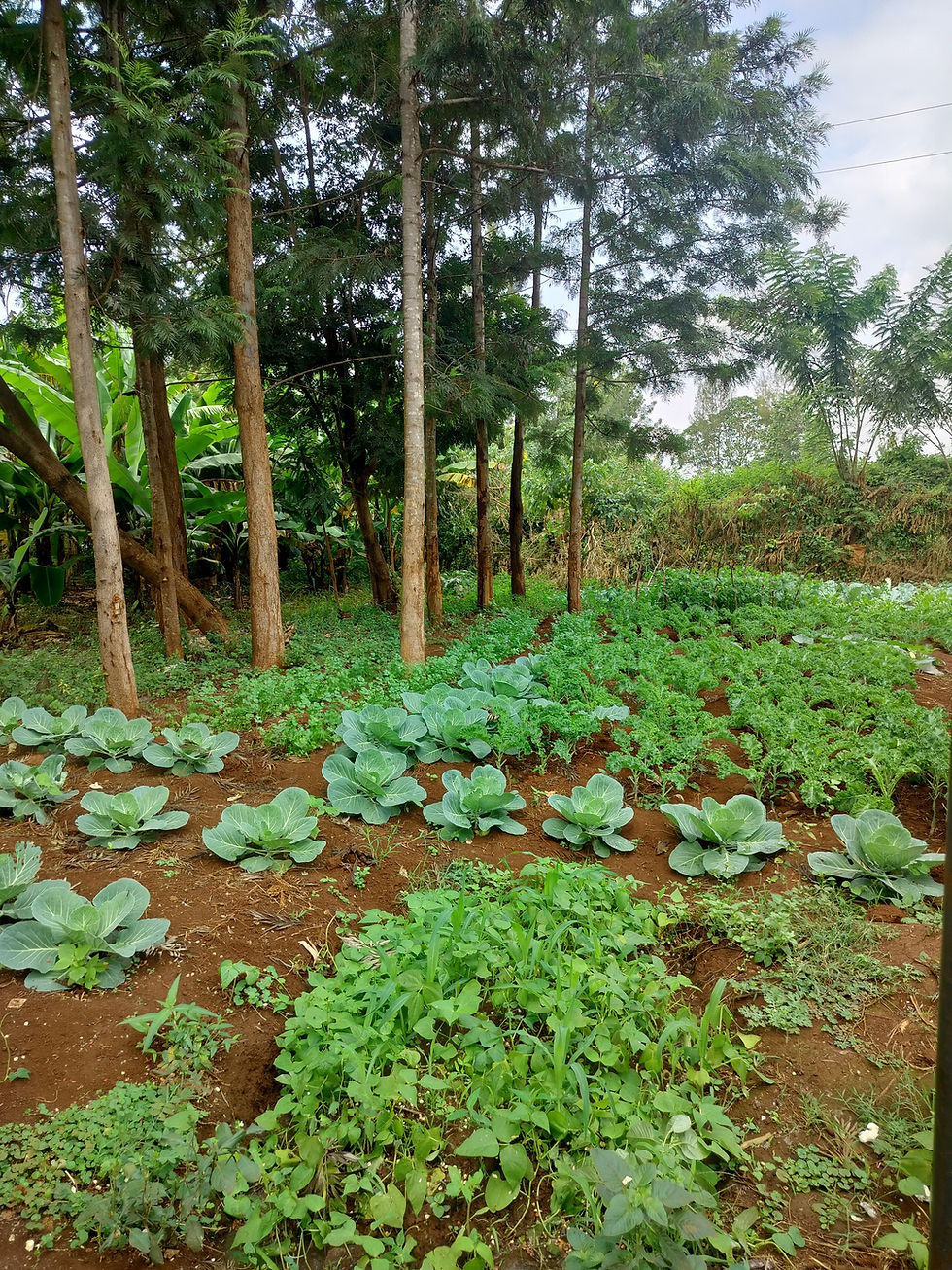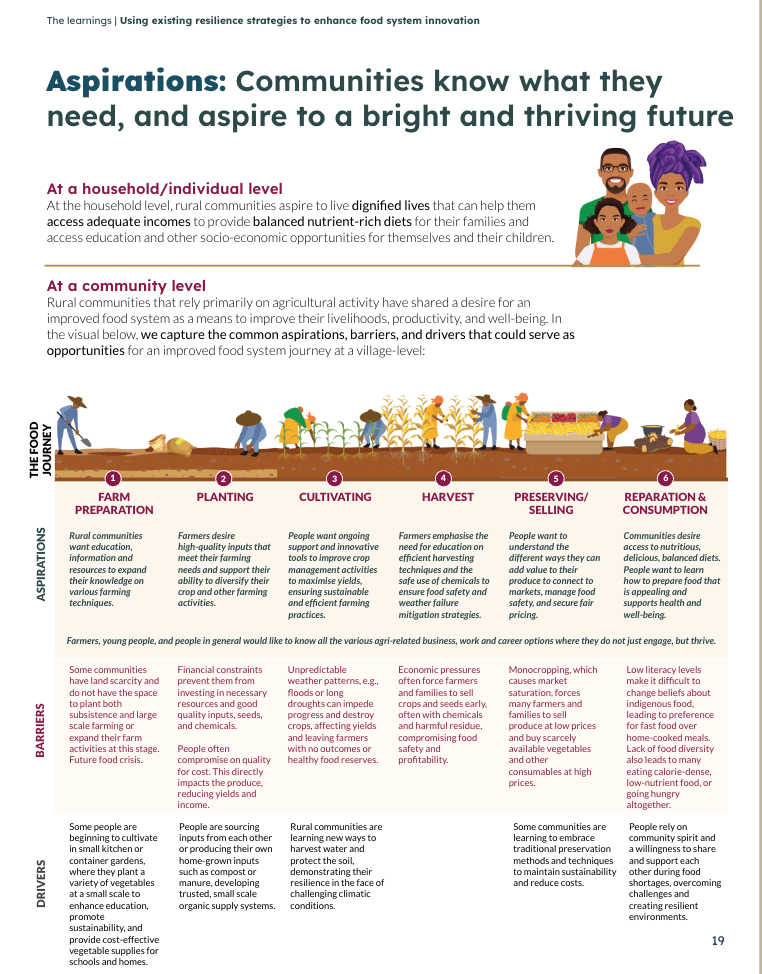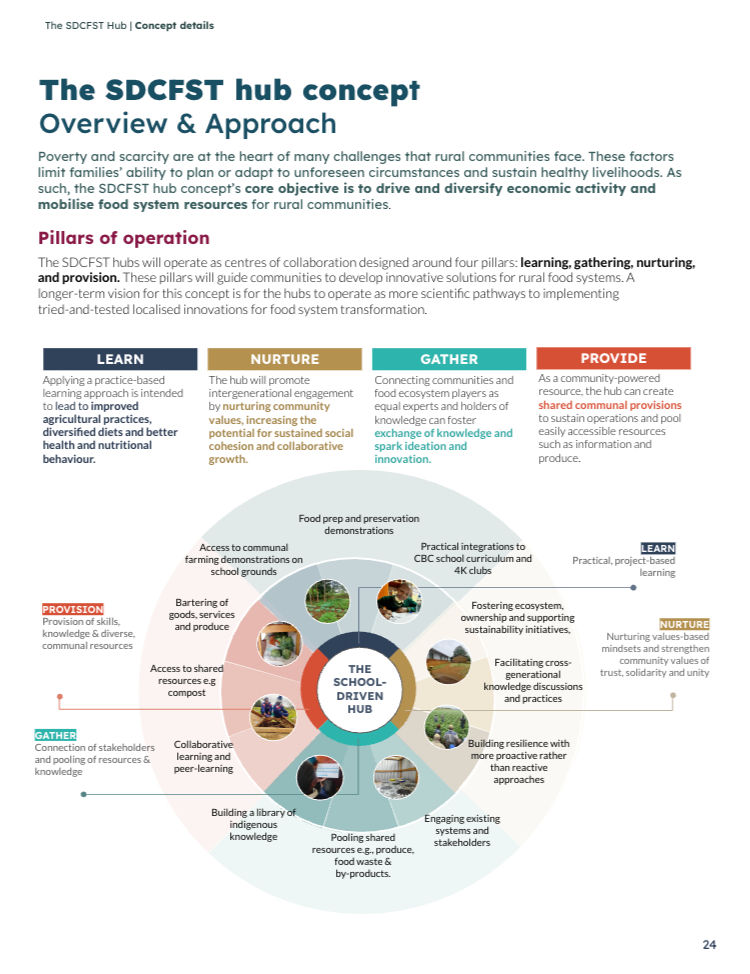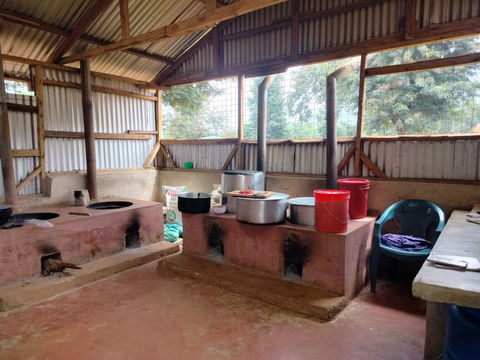School-Driven Food System Innovation
Co-creating Rural Food System Innovations Centred in Schools and Driven by Communities

Year: 2024
Location: Kenya
Partners: Malaika Kitchens, Rockefeller Foundation, Kimanya Ngeyo Foundation.
Role: Creative Director
Approach: HCD Research, Qualitative Research.
Team: Sandra Waihuini, Varsha Pradhan, Aika Matemu.

Context
Rural communities in East Africa are at continued risk of growing economic, environmental, and gendered social outcomes related to poverty and food insecurity. Schools are an integral feature of rural community life, making them ideal centres of transformation to initiate change and influence in food security through regenerative agriculture and climate-resilient education and practice. A school-driven model of food system innovation leverages schools’ infrastructure and social networks among parents, teachers, students and farmers to educate, innovate, and implement sustainable food practices. Educational programs integrated with agricultural development can equip students and their communities with the knowledge and tools to improve their immediate food environment and develop long-term, practical solutions to food insecurity. This research provided a detailed understanding of the challenges faced by rural farmers and communities, offering insights into potential solutions that reflect community desires to promote sustainable, climate-resilient food and agricultural practices for improved livelihoods.
Takeaways
1. Piloting scalable food system innovations requires the buy-in and coordination of multiple implementation partners at many levels of the food system ecosystem to determine viability for scale and surface contextual variables early on.
2. In the context of innovating around deeply complex food system innovations, modular priorities must be made clear to communicate the value and buy-in for different ecosystem stakeholders, offering clarity about what can be modelled or piloted concurrently and/or discreetly.
3. While schools are indeed centres of rural transformation, strict protections, controls and support structures and guidelines are essential to protect student wellbeing and prevent teacher and staff burnout, especially in resource-constrained schools.

Objectives of the Research
Recognising that food security is deeply intertwined with local infrastructure and social networks, this initiative sought to redesign the agricultural landscape from the ground up. Our primary goals were:
1. To gain a deeper understanding of rural communities' agricultural lives and embrace an ecosystem and community-centred approach to innovating food systems.
2. To understand the role of rural schools as centres of community transformation, and explore pathways where schools can be platforms to promote food system innovation.
3. To co-create and test a proof of concept that is informed by local resilience strategies and is designed to be tailored, scaled, and replicated across diverse contexts.
Creative Exploration
We interviewed 49 participants, including parents, teachers, farmers, students, and community leaders, involved throughout all stages of the research process, ensuring that their needs, perspectives, and experiences shaped the outcomes and solutions proposed.
The research toolkit included a variety of participatory activities to map out the layout of schools, identify community resources and surface potential risks associated with innovating on school grounds. To engage young students in creative ways, we provided drawing and colouring materials, encouraging them to illustrate their thoughts and draw what they believed was an ideal school, home and community environment, elevating things that were important to providing them with healthy meals at home and at school. The research also involved immersive activities such as visits and observations of school grounds, kitchen gardens, farms, and school-meal activities driven by Malaika Kitchens.
Highlights
Rural communities are already building community-oriented support systems where teachers and schools extend their roles to meet students' basic needs through school feeding programs and social support.
There is a conflict between the foods that reflect economic aspirations and indigenous recipes and ingredients that support good health. Blending traditional and innovative practices to enhance sustainability and food security could reduce dependence on expensive external inputs and optimise for a more harmonious integration of perspectives.
Migration and generational gaps reinforce a narrative of farming as a last resort rather than a viable career choice. The pervasive poverty in low-income rural communities perpetuates this mindset, widening the generational gap and draining rural areas of young talent as they opt for city life.
Market saturation from cycles of monocropping makes it difficult for farmers to profit. As a result, many farmers adopt risky health and safety choices around the preservation and storage of farm produce, often made to cut costs and survive economic pressures.
Outcomes
We co-created a community hub concept anchored by four pillars: learning, gathering, nurturing, and provision. These pillars were designed to advance community collaboration and a practice-based, self-driven approach, ensuring the hub’s priorities and features would be determined by the hub members and community. The hub concept design was also modular, meaning that members could opt to select one or more structural or operational features to activate, depending on their food innovation priorities.


Scroll through the gallery below for a view of some of the visual assets that we developed to amplify the learnings from this work.

A journey map describing the barriers, drivers and opportunities for food systems innovations at a household and community level.

Using the challenges and the resilient strategies that we discovered in the research, we co-created a robust community hub concept that is centred on school activities and aims to bring together teachers, parents, farmers and students for food system innovation.

Description and visualisation of the operational model of the proposed hub.

A journey map describing the barriers, drivers and opportunities for food systems innovations at a household and community level.

"
"We have embraced traditional preservation methods like sun drying maize. We teach our students the value of these methods because things have become expensive these days. By incorporating these methods into our curriculum, we hope that the future generation of farmers can be more resourceful and rely on what is available."
Quote from a teacher Teacher from a rural primary school in Kirinyaga







